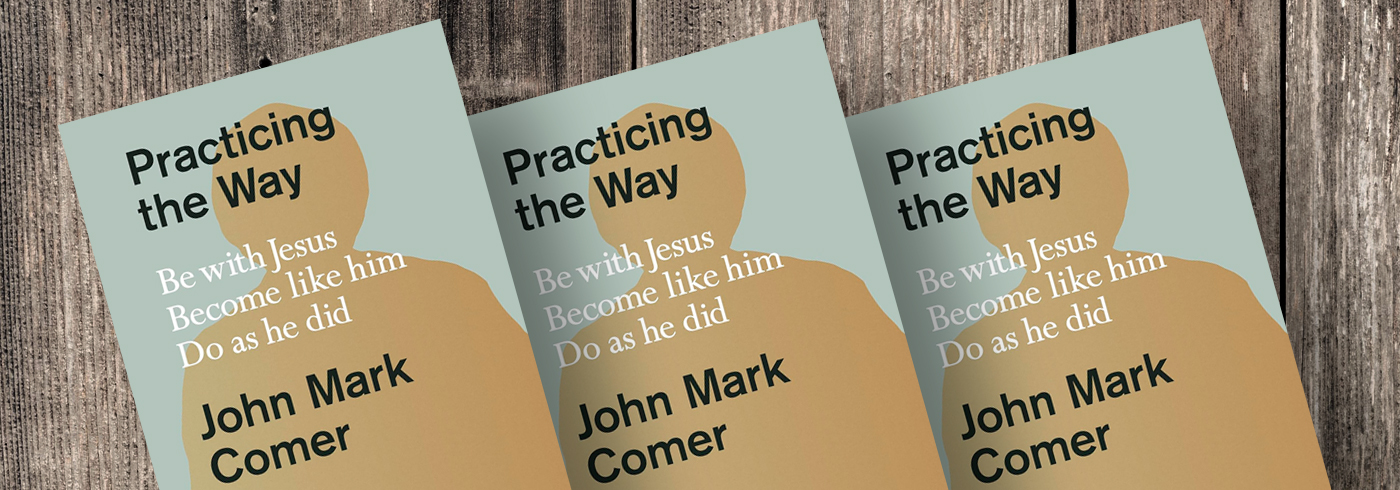How to Become an Apprentice of Jesus
Review of “Practicing the Way” by John Mark Comer
The Greek word for Christian appears three times in the New Testament, while the Greek word for disciple appears 261 times. And though Christian seems to have been coined by outsiders (Acts 11:26), insiders used disciple to describe themselves. Indeed, according to Jesus, the mission of the Church is simply to “make disciples of all nations” (Matthew 28:19, which uses a verb rather than a noun).
In principle, there’s no distinction between a Christian and a disciple. A Christian is a “little Christ.” A disciple is a person who follows Christ (Mark 8:34). Whatever the term, end result should be the same: Christlikeness.
But in practice, as John Mark Comer points out, “To many in the West, a Christian is just someone who mentally ascribes to the bare bones of Christianity (a word never used in Scripture) and may or may not occasionally attend church.” It is possible to be a Christian in this sense and at the same time not to be a disciple in any biblical sense.
Consequently, the Church needs to reclaim the practices of being disciples — Comer prefers the word apprentices — of Jesus Christ.
What is an apprentice of Jesus? According to Comer, the word describes “anyone whose ultimate aim is to be with Jesus in order to become like him and live the way Jesus would live if he were in their shoes.” This definition includes what we believe, but it doesn’t stop there. It includes how we feel and how we behave too.
Comer wrote Practicing the Way in order to help readers move toward greater Christlikeness from their current spiritual location.
He summarizes the goals of an apprentice of Jesus under three headings:
- Be with Jesus.
- Become like Jesus.
- Do what Jesus did.
Being with Jesus means putting into practice what He taught when He said, “Abide in me, and I in you. As the branch cannot bear fruit by itself, unless it abides in the vine, neither can you, unless you abide in me” (John 15:4, ESV). Later, Brother Lawrence called this “the practice of the presence of God.” Comer calls it “turning God into a habit.” To be with Jesus is simply to cultivate an awareness of Jesus’ presence with us throughout the day.
Apprenticeship to Jesus is desirable because the benefits — in this life and the next — outweigh any costs.
Becoming like Jesus, as Comer defines it, is “the process of being formed into people of love in Christ.” The primary driver of this process is the Holy Spirit. The Spirit uses teaching, spiritual practices, and community to form us in Christlike love over time, and suffering is often the crucible in which the deepest change takes place.
Doing what Jesus did, according to Comer, involves flowing in the rhythms of “making space for the gospel” (hospitality), “preaching” it (evangelism), and “demonstrating” it (healing, deliverance, prophecy, and justice).
How do we get from where we are spiritually to where apprentices of Jesus need to be?
It’s important to remember that the Holy Spirit is the driver of the process of spiritual formation, not us. Nevertheless, Comer recommends making “a plan for our spiritual lives,” quoting Peter Scazzero. Doing so requires developing a “rule of life” or set of habits that governs how we use our time, talents, and treasures.
Comer writes, “We must arrange our days — our morning routines, our daily habits, our schedules and budgets and relationships, the entire webs of our lives — so that we are deeply enjoying everyday life with God.”
This sounds like a chore, but the reality is that we are following a rule already. It’s just not one that is making us more like Jesus. Consequently, we need to unlearn spiritually deformative habits and learn spiritually formative ones.
These habits include, but are not limited to, traditional spiritual disciplines such as sabbath, solitude, prayer, fasting, Bible study, Christian community, generosity, service, and evangelism. These disciplines are means by which we become more like Jesus in thought, feeling, and action — not ends in and of themselves.
Comer closes Practicing the Way by talking about the Cross. Jesus said, “Whoever wants to be my disciple must deny themselves and take up their cross daily and follow me” (Luke 9:23). Emphasizing the cost of discipleship may seem like a weird way to recommend discipleship.
But Jesus immediately went on to say, “For whoever wants to save their life will lose it, but whoever loses their life for me will save it” (verse 24).
Discipleship has a cost, but so does non-discipleship. As Comer writes:
“Not following Jesus will cost you even more. It will cost you life with God, the very purpose for which you were created. It will cost you access to the inner life of the Trinity, the ‘peace … which transcends all understanding’ and the ‘joy that is inexpressible and filled with glory’ [Philippians 4:7; 1 Peter 1:8, ESV]. It will cost you freedom from the bondage of sin, healing from the wounding of sin, forgiveness from the guilt and shame of sin, and adoption into the family of God out of the isolation of sin.”
Apprenticeship to Jesus is desirable, then, because the benefits — in this life and the next — outweigh any costs.
I recommend Practicing the Way as an accessible, engaging introduction to spiritual formation for all readers. Pastors and other church leaders might consider it as a text in Sunday School classes, small groups, and discipleship classes. The back of the book lists several additional resources produced by Comer’s ministry, also called Practicing the Way.
Book Reviewed
John Mark Comer, Practicing the Way: Be With Jesus, Become Like Him, Do as He Did (Colorado Springs, CO: Waterbrook, 2023).
Influence Magazine & The Healthy Church Network
© 2026 Assemblies of God

